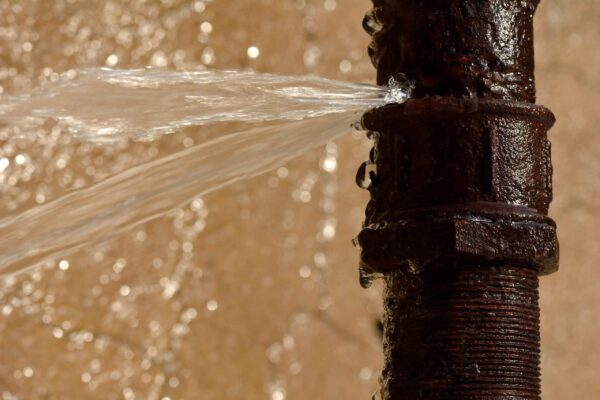How Does Slab Leak Detection Work?
A slab leak happens when water lines beneath the concrete foundation crack, burst, or wear down. Because these pipes are hidden, leaks often go unnoticed until there’s real damage, like rising water bills, mold, or cracks in the floor. Slab leak detection uses modern, non-invasive methods to locate these hidden leaks with precision and speed.
Professional plumbers at Pristine Plumbing rely on advanced tools to find the exact source of the leak, fix the problem efficiently, and protect your home from further damage, without tearing up floors or guessing where to start.
How Slab Leak Detection Works
Slab leaks are sneaky. You might notice warm spots on the floor, the sound of running water when nothing’s on, a spike in your water bill, or worse—cracks in your flooring or walls. These small signs often point to a much bigger problem beneath your foundation.
What makes slab leaks particularly dangerous is how long they can go unnoticed. Water can slowly erode soil under your foundation, cause shifting, and eventually lead to major structural damage. The longer you wait, the worse—and more expensive—it gets.
That’s where professional leak detection comes in. Instead of guessing and digging, we use precise, non-invasive detection methods to track down the exact location of the leak. No jackhammers. No mess. Just solid answers.
Non-Invasive Leak Detection Methods
Here’s how we find leaks without destroying your home:
Electronic Leak Detection
- How it works: Technicians send electromagnetic signals through the water lines under your slab. These signals help map the pipe’s path and flag unusual activity.
- What the plumber’s doing: Walking through your home with a device that tracks how the signals behave, kind of like a metal detector for plumbing.
- Why it works: If the signal suddenly changes, it usually means there’s a break, crack, or moisture around the pipe.
Acoustic Listening Tools
- How it works: Water escaping from a pipe makes noise, even under concrete. These tools amplify those sounds.
- What the plumber’s doing: Using sensitive microphones or geophones to “listen” through your floors.
- Why it works: The leak creates a unique sound signature that helps pinpoint the location with surprising accuracy — no excavation required.
Infrared Camera Inspection
- How it works: Leaking hot water changes the temperature of the surrounding area. An infrared camera picks up these changes.
- What the plumber’s doing: Scanning your floors and walls with a thermal imaging camera.
- Why it works: It’s great for finding hot water line leaks hidden behind tiles or flooring, especially without opening anything up.
Water Line Diagnostics & Pressure Testing
- How it works: Plumbers isolate parts of your water system and test for pressure drops.
- What the plumber’s doing: Using gauges, valves, and sometimes adding tracer gases or harmless dye.
- Why it works: If the pressure drops, or the tracer shows up somewhere it shouldn’t, they know exactly where to investigate.
Other Tools in the Toolbox
- Video Pipe Inspection: We use small cameras to explore your drain lines and spot problems inside the pipes.
- Moisture Meters: These help detect hidden dampness in walls and floors, often an early clue that a slab leak is present.
These advanced tools help experienced plumbers locate the exact source of the leak without disrupting your home — no sledgehammers required.
Pinpointing Underground Leaks: Why Accuracy Matters
Not all slab leaks are the same, but many start for similar reasons — poor installation, corroded pipes, shifting ground, high water pressure, or cheap materials used during construction. Whatever the cause, the damage adds up fast if it’s not handled correctly.
Here’s why accurate slab leak detection matters:
- Less demolition: No need to rip up your whole floor when the leak is found fast.
- Faster repair times: Crews go straight to the source and fix it.
- Lower costs: You avoid extra labor, wasted time, and unnecessary damage.
- Prevents further issues: Catching it early means you’re less likely to deal with mold, mildew, or structural damage.
- Supports water conservation: Wasted water doesn’t just cost you money — it affects California’s supply. Check out these new conservation rules to see why early detection is so important.
When leaks are misdiagnosed or not fully located, the repair can fail, or worse, the problem comes back. That means more money out of your pocket and more damage to your home. On the other hand, using professional leak location services with high-tech tools gets the job done right the first time.
Precision matters because it influences your repair options. Maybe you only need a spot repair. But if the system is failing in multiple places, rerouting or even repiping might make more sense long-term. Accurate detection also gives you documented proof for insurance claims, which can speed up approval and reimbursement.
Don’t wait for soaked carpets, cracked tiles, or a skyrocketing water bill to take action. Early detection can save you thousands and protect your health, your home, and your peace of mind. If you think something’s wrong, see how professionals resolve slab leak issues before it turns into a bigger problem.
Pristine Plumbing: Your Go-To Experts for Professional Leak Location
When you’re dealing with a slab leak, you need a team that knows how to find and fix the problem without the guesswork. At Pristine Plumbing, we’ve spent years helping homeowners across Orange County with slab leak detection and underground pipe repairs using accurate, non-invasive technology like acoustic sensors, infrared cameras, and electronic detection tools.
We specialize in tracking down hidden leaks, rerouting water lines, and full-home repiping when needed. You also get more than just repairs — we offer 24/7 emergency plumbing, home protection plans, and smart upgrades like leak sensors and auto shut-off valves.
Need help now? Schedule your appointment.





